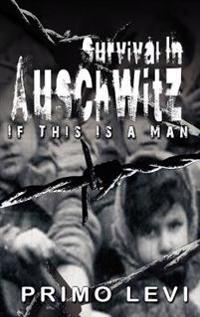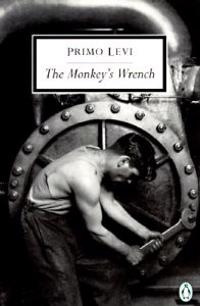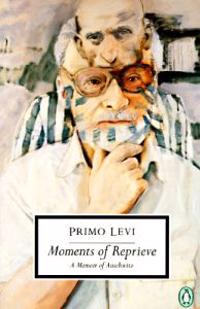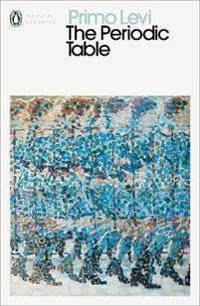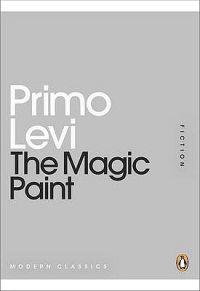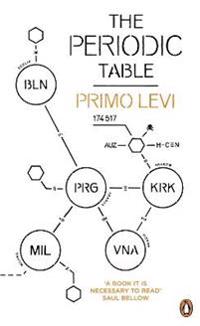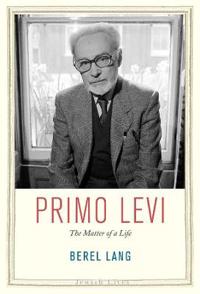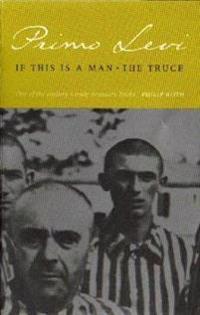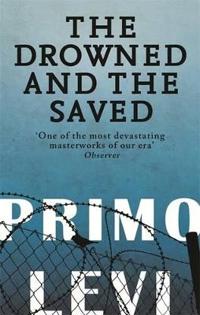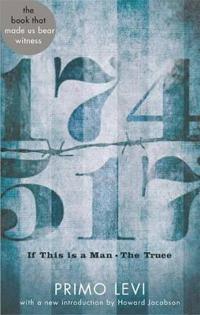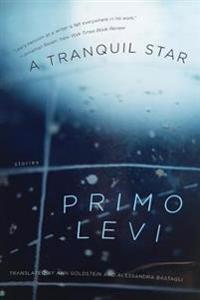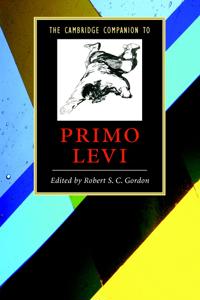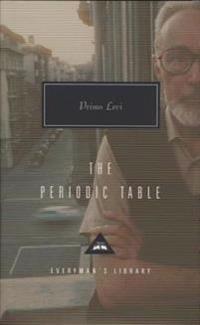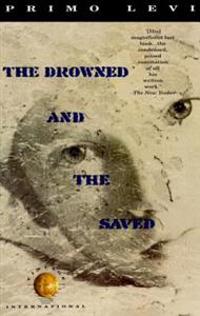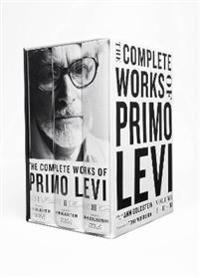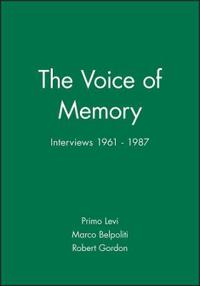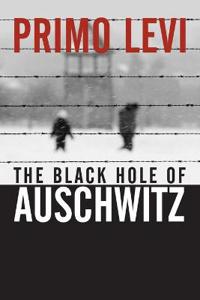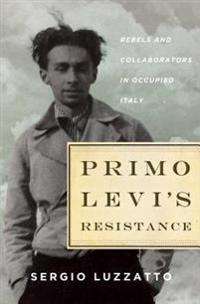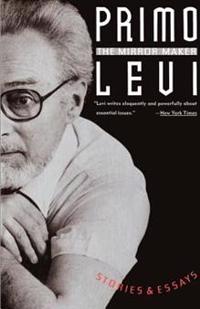Survival in Auschwitz (Inbunden)
avLevi Primo Levi, Primo Levi, Primo Levi
ISBN: 9789562915632 - UTGIVEN: 2007-08Survival in Auschwitz (Pocket)
avPrimo Levi, Stuart (TRN) Woolf, Primo Levi
ISBN: 9780684826806 - UTGIVEN: 1995-09In 1943, Primo Levi, a twenty-five-year-old chemist and "Italian citizen of Jewish race, " was arrested by Italian fascists and deported from his native Turin to Auschwitz. "Survival in Auschwitz" is Levi's classic account of his ten months in the German death camp, a harrowing story of systematic c[...]
Moments of Reprieve: A Memoir of Auschwitz (Häftad)
avPrimo Levi
ISBN: 9780140188950 - UTGIVEN: 1995-07The Periodic Table (Storpocket)
avPrimo Levi
ISBN: 9780141185149 - UTGIVEN: 200009Primo Levi's "The Periodic Table" is a collection of short stories that elegantly interlace the author's experiences in Fascist Italy, and later in Auschwitz, with his passion for scientific knowledge and discovery. This "Penguin Modern Classics" edition of is translated by Raymond Rosenthal with an[...]
The Magic Paint (Häftad)
avPrimo Levi
ISBN: 9780141196091 - UTGIVEN: 201102'He was blamed for endless disasters, from failed exams to a bridge collapse, an avalanche, even a shipwreck: all due, in the stupid opinion of, first, his fellow-students and, later, his colleagues, to the penetrating power of his evil eye...' Profound and compassionate, Primo Levi was one of the m[...]
Primo Levi's Ordinary Virtues: From Testimony to Ethics (Inbunden)
avRobert S.C. Gordon
ISBN: 9780198159636 - UTGIVEN: 2001-10-18Musings on Mortality: From Tolstoy to Primo Levi (Inbunden)
avVictor Brombert
ISBN: 9780226062358 - UTGIVEN: 2013-10-18The Periodic Table (Häftad)
avPrimo Levi
ISBN: 9780241956816 - UTGIVEN: 201204'So it happens, therefore, that every element says something to someone' Inspired by the rhythms of the "Periodic Table", Primo Levi assesses his life in terms of the chemical elements he associates with his past. From his birth into an Italian Jewish family through his training as a chemist, to the[...]
Primo Levi (Inbunden)
ISBN: 9780300137231 - UTGIVEN: 2014-01In 1943, twenty-four-year-old Primo Levi had just begun a career in chemistry when, after joining a partisan group, he was captured by the Italian Fascist Militia and deported to Auschwitz. Of the 650 Italian Jews in his transport, he was one of only 24 who survived the eleven months before the camp[...]
Primo Levi: A Life (Häftad)
avIan Thomson
ISBN: 9780312423674 - UTGIVEN: 200412Primo Levi wrote books that have been called "the essential works of humankind," including "Survival in Auschwitz and "The Periodic Table. Yet he lived an unremarkable existence, remaining to his death in the house in which he'd been born; managing a paint and varnish factory for thirty years; and t[...]
If This is a Man/The Truce (Storpocket)
avPrimo Levi
ISBN: 9780349100135 - UTGIVEN: 198801With the moral stamina and intellectual pose of a twentieth-century Titan, this slightly built, duitful, unassuming chemist set out systematically to remember the German hell on earth, steadfastly to think it through, and then to render it comprehensible in lucid, unpretentious prose. He was profoun[...]
The Drowned and the Saved (Storpocket)
avPrimo Levi
ISBN: 9780349100470 - UTGIVEN: 198902Shortly after completing THE DROWNED AND THE SAVED, Primo Levi committed suicide. The matter of his death was sudden, violent and unpremiditated, and there were some who argue that he killed himself because he was tormented by guilt - guilt that he had survived the horrors of Auschwitz while others,[...]
If This is a Man/The Truce 40th Anniversary edition (Pocket)
avPrimo Levi
ISBN: 9780349139012 - UTGIVEN: 201304With the moral stamina and intellectual pose of a twentieth-century Titan, this slightly built, duitful, unassuming chemist set out systematically to remember the German hell on earth, steadfastly to think it through, and then to render it comprehensible in lucid, unpretentious prose. He was profoun[...]
A Tranquil Star (Pocket)
avPrimo Levi
ISBN: 9780393331615 - UTGIVEN: 2008-04These seventeen stories, first published in Italian between 1949 and 1986, demonstrate Levi's extraordinary range, taking the reader from the primal resistance of a captured partisan fighter to a middle-aged chemist experimenting with a new paint that wards off evil, to the lustful thoughts of an ol[...]
The Cambridge Companion to Primo Levi (Pocket)
avRobert S. C. Gordon
ISBN: 9780521604611 - UTGIVEN: 200708Primo Levi (1919-1987) was the author of a rich body of work, including memoirs and reflections on Auschwitz, poetry, science fiction, historical fiction and essays. In particular, his lucid and direct accounts of his time at Auschwitz, begun immediately after liberation in 1945 and sustained until [...]
The Periodic Table (Inbunden)
avPrimo Levi, Neal Ascherson
ISBN: 9780679444633 - UTGIVEN: 199610An extraordinary work in which each of the 21 chapters takes its title and starting point from one of the elements in the periodic table. Mingling fact and fiction, history and anecdote, Levi uses his training as a chemist and his experiences as a prisoner in Auschwitz to illuminate the human condit[...]
The Drowned and the Saved (Häftad)
avPrimo Levi, Erroll McDonald
ISBN: 9780679721864 - UTGIVEN: 198904Levi wrote of the moral collapse that occurred in Auschwitz and the fallibility of human memory that allows such atrocities to recur. Levi's last book published before his death in 1987.[...]
The Complete Works of Primo Levi
ISBN: 9780713999563 - UTGIVEN: 2015-09Primo Levi's entire body of work, newly translated, in three beautifully slip-cased hardback editions, with an introduction by Toni Morrison Primo Levi has long been admired for his harrowing account of suffering in Auschwitz, If This Is a Man. Among the thousands of survivors who have written about[...]
Voice of memory - interviews, 1961-1987 (Pocket)
avPrimo Levi
ISBN: 9780745621500 - UTGIVEN: 200012Over the course of more than 25 years, Primo Levi gave more than 200 newspaper, journal, radio and television interviews, speaking with such varied authors as Philip Roth and Germaine Greer. The editors have selected and translated 36 of the most important of these inteviews for this book.[...]
The Black Hole of Auschwitz (Inbunden)
avPrimo Levi, Editor:Marco Belpoliti, Translated By:s Wood
ISBN: 9780745632407 - UTGIVEN: 2006-02-28The Black Hole of Auschwitz (Häftad)
avPrimo Levi, Editor:Marco Belpoliti, Translated by:S Wood
ISBN: 9780745632414 - UTGIVEN: 200602The Black Hole of Auschwitz brings together Levi's writings on the Holocaust and his experiences of the concentration camp, as well as those on his own accidental status as a writer and his chosen profession of chemist.[...]
Primo Levi's Resistance
ISBN: 9780805099553 - UTGIVEN: 2016-01No other Auschwitz survivor has been as literarily powerful and historically influential as Primo Levi. Yet Levi was not only a victim or a witness. In the fall of 1943, at the very start of the Italian Resistance, he was a fighter, participating in the first attempts to launch guerrilla warfare aga[...]
The Mirror Maker: Stories & Essays (Häftad)
avPrimo Levi, Lorenzo Mondo
ISBN: 9780805209891 - UTGIVEN: 1990-10With the publication of "The Periodic Table"on 1984, Primo Levi became one of America's most beloved writers. This new collection of his stories and essays reveals the full imaginative range of this great Italian writer. Most of the stories are science fiction and fantasy, combining Levi's love for [...]

